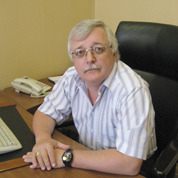The Russian translation market: MARK Business Translations' view and opinion

How would you briefly assess today’s Russian translation services market?
While the market is mature and highly competitive, it has also remained segmented and under-organized.
For comparative analysis, how does the Russian market, in your opinion, correlate to markets in other CIS and European countries in terms of market size, service quality and equipment base?
Here, it is necessary to differentiate between European and CIS markets. Russia, based on the aforementioned parameters, is located somewhere between the former and the latter.
One of the unique features of your industry is the fact that demand for services depends on the state of economy and level of intensity of interactions between countries. In this regard, how, in your opinion, has the crisis affected your industry?
Indeed, our industry is highly sensitive, perhaps, more sensitive than others, to both economic and political conditions, a fact evident in the negative impacts of the current crisis on business activities on this market. For instance, our company’s orders volume dropped by about 30%, falling in some months to 50% of our pre-crisis figures. On the whole, the industry’s total orders volume, according to our data, was down by about 30%-40% during the crisis.
As a continuation of the previous question, and taking into account the gradual recovery of the economy from the current crisis, how do you see the future of this market?
As I have once said, we are fated to grow, whether there are crises or not. The survivors of this crisis will double their growth rates. For example, we have already surpassed our pre-crisis results.
There is an increasing use of the so-called ‘electronic translators’ in this industry. What is your opinion of this tendency and how really helpful are these ‘gadgets’ to translators?
I strongly disapprove of them. Any notion that translation, as a profession, is disappearing is far from reality. Translation is primarily an intellectual process, and no electronic device today or in the near future can adequately replace human intellect. This is the main challenge and, at the same time, the main value of our services. Our company strictly prohibits the use of any machine translation, excluding translation memory systems, and this requirement is specified in contract agreements with clients.
“We owe our success to continuous painstaking work on training our translators and editors, establishing an effective work processes, constant task quality control and client education.”
Now, let’s shift our focus to your company, which within a decade has grown from a small agency into a pacesetter in its market segment. How would you briefly explain such success?
Briefly speaking, I can say that we owe our success to continuous painstaking work on training our translators and editors, establishing effective work processes, constant task quality control, client education, etc.
Competition is currently at a cutthroat level, as all possible players are present in this industry. In this context, what are your company’s key competitive advantages in this sector?
These include an entire range of parameters created over years of experience, such as our fine-tuned work process, unceasing quality control and well-established reputation as a highly professional company. It also involves our policy of being a “specialized,” as opposed to a “universal’ translation company. For example, we are unlikely to engage in translating complex technical specifications for machinery. There are companies on the market that can do this much better than us. However, in our own segment of business translation, we are confident of our ability to deliver a high-quality product, and our clients are well aware of that.
Your company is an active member of both leading Russian and foreign professional business associations. How does this help your company in its business operations?
First of all, membership in such organizations provides us with contacts and opportunities to be well-informed about market developments, discuss translation business issues with colleagues, improve our service quality, learn new ways of solving problems, get an idea of the direction that our market is growing and track the evolution of clients’ needs and requirements. A combination of all these factors enables us to develop our industry further.












 Web design,
Web design,